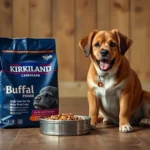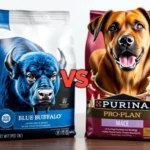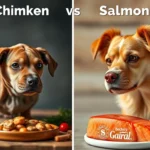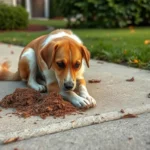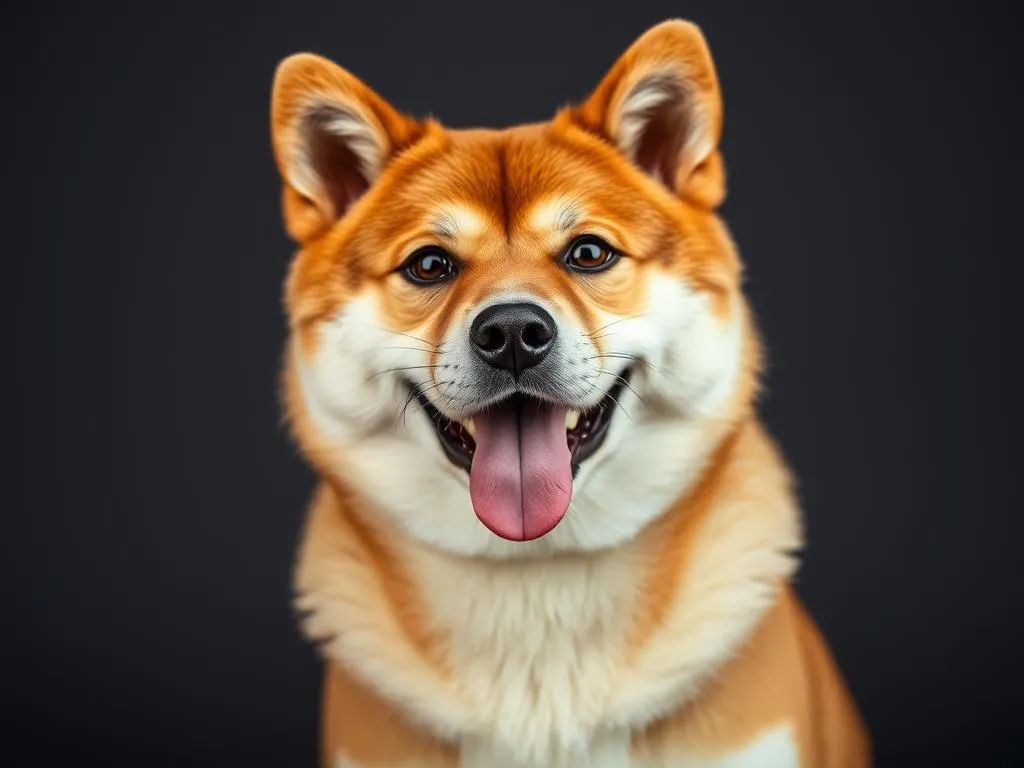
Introduction
Proper nutrition is vital for the health and well-being of any dog, and it holds particular significance for Shiba Inu. Known for their spirited personality and fox-like appearance, Shiba Inu have unique dietary needs that must be addressed to ensure they thrive. This article will provide a comprehensive guide to the best dog foods for Shiba Inu, focusing on their specific nutritional requirements, key ingredients to look for, and recommended brands.
Understanding Shiba Inu Nutritional Needs
Overview of Shiba Inu Characteristics
Shiba Inu are small to medium-sized dogs, typically weighing between 17 to 23 pounds and standing 13.5 to 16.5 inches tall. They are known for their energetic and spirited nature, making them quite active. This breed is also predisposed to certain health issues, such as hip dysplasia and obesity, which can be influenced by diet. Therefore, understanding their nutritional needs is essential for promoting a healthy lifestyle.
Key Nutritional Components
To meet the dietary needs of a Shiba Inu, it’s crucial to consider the following nutritional components:
-
Proteins: Vital for muscle development and overall health, proteins should come from high-quality sources like chicken, beef, or fish. Look for foods with at least 20-30% protein content.
-
Fats: Healthy fats are essential for energy and skin health. Omega-3 and Omega-6 fatty acids not only provide energy but also contribute to a shiny coat and overall vitality.
-
Carbohydrates: While dogs primarily require protein and fats, carbohydrates are necessary for energy and digestion. Whole grains and vegetables can serve as excellent sources.
-
Vitamins and Minerals: Essential for overall health, vitamins and minerals play a role in immune function, bone health, and more. Ensure the food you choose is fortified with necessary nutrients.
Special Dietary Considerations
Every dog is unique, and Shiba Inu can have specific dietary considerations:
-
Food Allergies and Sensitivities: Some Shiba Inu may develop allergies or sensitivities to common ingredients such as grains or certain proteins. Identifying these issues early is crucial for their well-being.
-
Age-Specific Nutritional Needs: Puppies, adults, and senior Shiba Inu have different nutritional needs. Puppies require more protein and calories for growth, while seniors may benefit from joint-supporting nutrients.
Top Ingredients to Look for in Dog Food
High-Quality Proteins
When selecting the best dog foods for Shiba Inu, prioritize high-quality animal protein sources like chicken, lamb, and fish. These proteins are more digestible and provide essential amino acids that support muscle health.
Healthy Fats
Healthy fats are indispensable in a dog’s diet. Look for dog foods that include sources of Omega-3 and Omega-6 fatty acids, such as fish oil or flaxseed oil. These fats contribute to skin health and provide energy.
Digestive Health
Digestive health is paramount for Shiba Inu. Foods that contain fiber, such as beet pulp or pumpkin, help maintain a healthy gut. Additionally, probiotics can enhance digestion and nutrient absorption.
Avoiding Harmful Ingredients
When reading ingredient labels, avoid foods with fillers (such as corn and soy), artificial preservatives, and additives. These ingredients offer little nutritional value and can contribute to health issues over time.
Recommended Dog Food Brands for Shiba Inu
Dry Kibble Options
-
Blue Buffalo Life Protection Formula: High-quality protein sources and additional antioxidants make this a great choice for maintaining a healthy immune system.
-
Wellness CORE Grain-Free: This high-protein kibble is ideal for active Shiba Inu, providing essential nutrients without unnecessary fillers.
-
Orijen Original Dry Dog Food: Packed with fresh, regional ingredients, Orijen provides a biologically appropriate diet that supports overall health.
-
Merrick Grain-Free Texas Beef & Sweet Potato: This formula offers high-quality beef as the first ingredient, along with wholesome vegetables for balanced nutrition.
-
Canidae PURE Limited Ingredient: Perfect for Shiba Inu with food sensitivities, this kibble features a limited number of ingredients without sacrificing quality.
Wet/Canned Food Options
-
Hill’s Science Diet Adult: A veterinarian-recommended option that offers balanced nutrition and is specifically formulated for adult dogs.
-
Royal Canin Shiba Inu Adult: Designed specifically for Shiba Inu, this formula addresses breed-specific needs and promotes healthy skin and coat.
-
Wellness CORE Grain-Free: Their wet food option complements their dry kibble and is packed with protein and nutrients.
-
Nutrish Zero Grain by Rachael Ray: This grain-free option focuses on real meat and wholesome vegetables, avoiding fillers and artificial ingredients.
-
Purina Pro Plan Savor Adult: This wet food combines high-quality protein with essential nutrients for a balanced diet.
Raw and Freeze-Dried Options
-
Stella & Chewy’s Freeze-Dried Raw Dinner Patties: These patties offer a convenient way to provide a raw diet while ensuring balanced nutrition.
-
Primal Pet Foods Freeze-Dried Nuggets: Rich in protein and made from high-quality ingredients, these nuggets are easy to serve and highly palatable.
-
Nature’s Logic Canine Chicken Meal: This raw-inspired option includes whole foods and aims to replicate a natural diet for dogs.
-
Instinct Raw Boost Mixers: These freeze-dried raw bites can be mixed with kibble to enhance meals and provide added nutrition.
-
The Honest Kitchen Dehydrated Raw Dog Food: This option allows pet owners to add water to create a fresh, nutritious meal made from whole foods.
Homemade Diets for Shiba Inu
Benefits of Homemade Dog Food
Many dog owners consider homemade diets for their pets. One of the primary benefits is the control over ingredients, allowing for high-quality, fresh components tailored to the dog’s specific needs.
Essential Ingredients for Homemade Meals
When preparing homemade meals for a Shiba Inu, include the following essential ingredients:
- Proteins: Chicken, turkey, beef, or fish.
- Carbohydrates: Brown rice, sweet potatoes, or oats.
- Vegetables: Carrots, peas, and spinach.
- Healthy Fats: Olive oil or fish oil for Omega fatty acids.
Consider consulting with a veterinarian for recommended recipes and portion sizes to ensure a balanced diet.
Consulting with a Veterinarian
Before making significant dietary changes, it’s crucial to consult with a veterinarian. They can provide professional guidance to ensure the homemade diet meets all nutritional requirements.
Feeding Guidelines for Shiba Inu
Portion Control
Determining the right serving size for your Shiba Inu is essential for maintaining a healthy weight. A general rule of thumb is to follow the feeding guidelines provided on the dog food packaging, adjusting based on the dog’s activity level and weight.
Feeding Schedule
Shiba Inu typically do well with two meals per day. Puppies may require more frequent feeding, but as they mature into adulthood, transitioning to two meals is generally sufficient.
Monitoring Weight and Health
Regularly monitor your dog’s weight and overall health. Signs of weight gain or loss can indicate dietary issues. Keep an eye on their energy levels and coat condition as these can also reflect their nutritional status.
Common Mistakes in Shiba Inu Nutrition
Overfeeding and Treats
One of the most common mistakes pet owners make is overfeeding their dogs. Treats should not exceed 10% of your dog’s daily caloric intake, as excessive treats can lead to obesity and related health problems.
Ignoring Allergies and Sensitivities
Many Shiba Inu may have food allergies or sensitivities that go unnoticed. Watch for signs such as itching, digestive issues, or unusual behavior and consult a vet to adjust their diet accordingly.
Inadequate Research on Dog Foods
Not all dog foods are created equal. It’s essential to research and choose reputable brands that prioritize quality ingredients. Understanding ingredient labels is crucial for making informed choices about what you feed your dog.
Conclusion
In conclusion, providing the best dog foods for Shiba Inu is essential for their health and happiness. By understanding their unique nutritional needs, selecting high-quality ingredients, and being mindful of portion sizes and feeding schedules, you can ensure your Shiba Inu leads a healthy and active life. It’s always a good idea to consult with a veterinarian for personalized dietary recommendations to optimize your dog’s nutrition. Prioritize your furry friend’s dietary needs, and they will reward you with loyalty and companionship for years to come.
